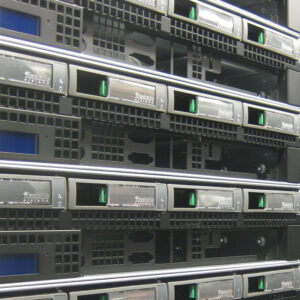Written by Fani Sánchez
Shared servers, also called shared web hosting, are the best option to start having a website. Generally, at the beginning, the traffic of a website will not require the capacity of a dedicated server or housing. It will also not take up much space and is not likely to be a complex application, so a shared virtual server may be the most cost-effective solution.

It is of utmost importance to know the characteristics of the service and if there are any usage restrictions, in order to know if the characteristics are adapted to the needs of the website.
Some of the most important features of shared hosting that should be taken into account before hiring it are:
- Operating System: depending on the system installed in the hosting, the way it is managed and the type of technologies (programming languages, database systems) that the Web can use will depend on it. The most common operating systems for shared servers are based on Linux or Windows.
- Disk space: the amount of information that the Web page can have will depend on this space. It is usually measured in Megabytes or Gigabytes.
- Transfer: this is the maximum data traffic that can be consumed by the Web and is usually measured in Gigabytes.
- Uptime: Refers to the minimum time that the provider guarantees that the service will be operational. It is usually measured annually and is most commonly 99.99%. The higher the uptime, the higher the quality of service.
There are other features that may be interesting (FTP accounts, email accounts, number of databases), although these will depend on the needs of the Web and its users.
Advantages of shared servers
Some of the most interesting advantages of shared servers are:
- Low price: compared to any other Web hosting service.
- No administration: it is not necessary to have specialized personnel to maintain and update the server, as this will be taken care of by the company providing the service.
- Easy to use: the service usually has control panels that facilitate the management of common tasks such as the creation of an email.
- Scalable resources: although resources, such as disk space, can run out, providers often make it easy to increase these resources with a corresponding increase in price.
Disadvantages of shared servers
Shared hosting has some disadvantages, among which are:
- Limited resources: even if you specify the resources you have, a sudden surge of visitors can quickly exhaust your resources and bring your site down.
- Problem dissemination: Problems on websites with which you share a server, such as attacks or excessive resource consumption, can affect website performance and security. Problems related to IP sharing are also common, especially when sending emails.
- Limited control: some Web applications require special configurations to function and, in the case of shared hosting, there is usually not enough control over the server to make the appropriate modifications.
Depending on the needs of the company or person owning the Web and the importance of the site, shared servers can be an economical and sufficient solution to obtain a satisfactory service.